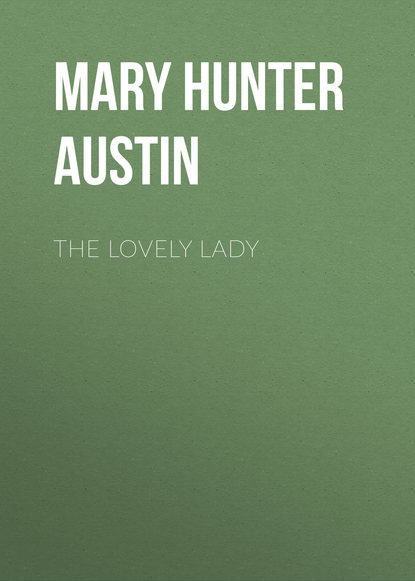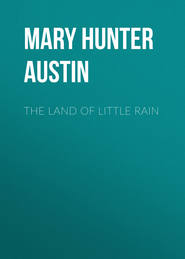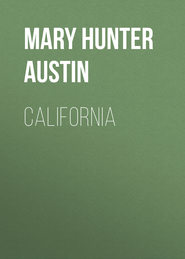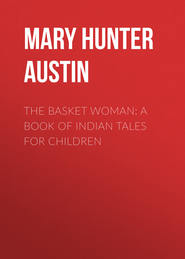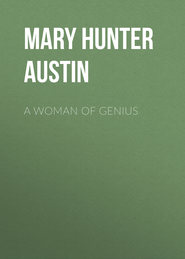По всем вопросам обращайтесь на: info@litportal.ru
(©) 2003-2024.
✖
The Lovely Lady
Настройки чтения
Размер шрифта
Высота строк
Поля
"I've been wanting to speak to you about some property of mine," Peter ventured. "It's a farm up country."
"What's it worth?"
"Well, I've added to it some the last ten years and made considerable improvement. I ought to get three thousand."
"That's for farming? For summer residence it ought to bring more than that. Any scenery?"
"Plenty," Peter satisfied him on that score. "I've been thinking," he let out shyly, "that if I could put the price of it in some place where I could watch it, the money would do me more good...."
Lessing turned on him a suddenly brightening eye.
"That's the talk—say, you know I think I could get you forty-five hundred for that farm of yours anyway." They looked at one another on the verge of things hopeful and considerable. As Peter's car swung around the curve, suddenly they blushed, both of them, and reached out and shook hands.
That evening as Peter came home he saw Lessing buying chrysanthemums at the florist's with a happy countenance, and to master the queer pang it gave him, Peter got off the car and walked a long way out on the dim wet pavement. He was looking at the bright picture of Lessing and the girl—she was really very pretty—and seeing instead, himself, quite the bachelor, and his lame sister taking their blameless dull way in the world. He couldn't any more for the life of him, get a picture of himself without Ellen in it; the tapping of her crutch sounded even in the House when he visited it in his dreams. It was well on this occasion that he had Ellen beside him, for she showed him the way presently to take it, as he knew she would take it as soon as he went home and told her—as another door by which they could enter sympathetically in the joyousness they were denied. She would be so pleased for Julian's sake, in whom, by Peter's account of him, she took the greatest interest, and so pleased for the girl to have such a handsome, capable lover. It made, for Ellen, a better thing of life if somebody could have him.
Peter went back after a while with that thought to the florist's and bought chrysanthemums, taking care to ask for the same kind Mr. Lessing had just ordered. He was feeling quite cheerful even, as he ran up the steps with them a few minutes later, and saw the square of light under the half-drawn curtain, and heard the tap of Ellen's crutch coming to meet him.
That night after he had gone to bed a very singular thing happened. The Princess out of the picture visited him. It was there at the foot of his bed in a new frame where Ellen had hung it—the young knight riding down the old, lumpy dragon, but with an air that Peter hadn't for a long time been able to manage for himself, doing a great thing easily the way one knew perfectly great things couldn't. The assistant sales manager of Siegel Brothers had been lying staring up at it for some time when the Princess spoke to him. He knew it was she, though there was no face nor form that he could remember in his waking hours, except that it was familiar.
"Ellen is right," she told him; "it doesn't really matter so long as somebody finds me."
"But what have I done?" Peter was sore with a sense of personal slight. "It wasn't in the story that there should be a whole crop of dragons."
"All dragons are made so that where one head comes off there are seven in its place; and you must remember if somebody didn't go about slaying them, I couldn't be at all." This as she said it had a deep meaning for Peter that afterward escaped him. "And you can hold the dream. It takes a lot of dreaming to bring one like me to pass."
"I'm sick of dreams," said Peter. "A man dies after a little who is fed on nothing else."
"They die quicker if they stop dreaming; on those that have the gift for it the business of dreaming falls. Listen! How many that you know have found me?"
"A great many think they have; it comes to the same thing."
"The same for them; but you must see that I can never really be until I am for those outside the dream. The trouble with you is that you'd wake up after a while and you would know."
"Yes," Peter admitted, "I should know."
"Well, then," she was oh, so gentle about it, "yours is the better part. If you can't have me, at least you're not stopping me by leaving off for something else. In the dream I can live and grow, and you can grow to me. Do you remember what happened to Ada Harvey? I've saved you from that at any rate."
"No," said Peter, "it was the dragon saved me. I thought you were she. It's saved me from lots of things, now that I think of it."
"Ah, that's what we have to do between us, Peter, we have to save you. You're worth saving."
"Save me for what?" Peter cried out to her and so strongly in his loneliness that he found himself starting up from his bed with it. He could see the dragon spitting flames as before, and the pale light from the swinging street lamp gilding the frame of the picture. Though he did not understand all that had happened to him, as he lay down again he was more comforted than he had been at any time since he had made up his mind that he was to be a bachelor.
PART FOUR
IN WHICH THE LOVELY LADY MAKES A
FINAL APPEARANCE
I
On the day that the silver-laced maple, then in fullest leaf, had passed by the space of three delicate palm-shaped banners the sill of the third-story office window, Lessing, of Weatheral, Lessing & Co., Brokers in Real Estate, crossed over to his partner's desk before sitting down at his own, and remained quietly leaning against it and looking out of the window without a word. He remained there staring out over the new, orderly growth of the suburb, toward the river, until the stenographer from the outer room had come in with the vase which she had been filling with great golden roses, and gone out again, after placing it carefully in the exact middle of the top of the junior partner's desk. By that time Lessing's rather plump, practical hand had crept out along the rim of the desk until it was covered by Peter's lean one, and still neither of them had said a word. The roses had come in from Lessing's country place that morning in Lessing's car, and Lessing's wife had gathered them. There were exactly seventeen, full-blown and fragrant, and one small bud of promise which Peter presently removed from its vase to his button hole. The act had almost the significance of a ritual, a thing done many times with particular meaning.
"Somehow," Peter said as he fastened it with a pin underneath his lapel, "seventeen years seems a shorter time to look back on than to look forward to."
"Well, when we've put twenty-five years of work into it—and that's nothing to what we'll get into the next seventeen." Lessing's tone keyed admirably with the bright ample day outside, the rapid glint of the river and the tips of the maple all a-tremble with the urgency of new growth. The senior partner's eye roved from that to the restrained richness of the office furniture from which the new was not yet worn, and returned to the contemplation of the towering white cumuli beginning to pile up beyond the farther bank of the river. "There's no end to what a man can lift," he asserted confidently, "once he's got his feet under him."
"We've carried a lot," Peter assented cheerfully, "and sometimes it was rather steep going, but now it's carrying us. The question is"—and here his voice fell off a shade and a slight gathering appeared between his eyes—"the real question is, I suppose, what it is carrying us to."
"Where's the good of that?" Julian protested. "It's only a limitation to set out for a particular place. The fun is in the going. You keep right along with the procession until old age gets you. The thing is just to keep it up as long as you can." He swung himself into a sitting posture on the edge of the desk and noted that the slight pucker had not left his partner's eyes. "What's the idea?" he wished affectionately to know.
"Oh, nothing much, but I sort of grew up with the idea of Duty—something you had to do because there was nobody else to do it. You had not only to do it but you had to like it, not because it was likable, but because it was your duty. It was always right in front of me: I couldn't see over or around it; I just had to do it."
"Well, you did it," Lessing corroborated. "Clarice says the way you've taken care of Ellen–"
"And the way Ellen has taken care of me—but then Ellen was all the woman I had." He caught himself up swiftly after that; it was seldom even to his partner that anything escaped him in reference to the interior life of dreams which had gone on in him, quite happily behind his undistinguished exterior. "But somehow it hasn't seemed to come out anywhere. I've done my duty … and when I'm dead and Ellen's dead, where is it? After all, what have I done?"
"Ah, look at Pleasanton," Julian reminded him; "do you call that nothing?" They looked together toward the esplanade along the river, beginning at this hour to be flecked with the white aprons of nurse-maids and their charges. "We've given them clean water to drink and clean streets, and a safe place for the children to play in. The fight we had with the city council for that …!" He waved his arm again toward the well-parked river front. "Ever since I sold your farm for you and you began putting your money into the business, we've walked right along with it. Even before you left Siegel Brothers and we used to sit up nights with the map, planning where to put our money like a checker-board, we saw things like this for the town, and now we've made 'em true. And you say we've done nothing!" The senior partner was touched a little in his tenderest susceptibilities.
"Oh, well," Peter admitted with a shamed laugh, "I suppose man is an incurable egotist. I was thinking of something more personal, something mine, the way a book or a picture belongs to the man who makes it."
"The game isn't over yet," Lessing reminded him, with a glance at the unfolding bud which Clarice had sent as a symbol of the opening year; "you're only forty. And, anyway, the money's yours; you made it." Something in the word recalled him to a thought that had been earlier in his mind. "Clarice wanted me to ask you to-day if you had any idea how much you are worth."
Peter's attention came back from the window with a start. "Does that mean the Fresh Air Fund or the Association for the Protection of Ownerless Pups?"
Julian grinned. "Ownerless bachelors rather. Clarice has an idea you are well enough off to marry."
"If it were a proposition of my being married to Clarice I should consider myself well enough off without anything else–" Peter dropped the light, accustomed banter for a sober tone. "How well off does your wife think I ought to be?"
"She's got it figured out that all you've spent on making Ellen comfortable for life isn't a patch on what she and the boys cost me, so it's high time you set about your natural destiny of making some woman happy."
"Look here, Julian, is it an object for a man to live for, making some woman happy?"
"Well, it keeps you on the jump all right," Lessing assured him. "What else is there? It's a way of making yourself happy when you come to look at it; keeping her and the kids so that you leave the world better off than you found it. It suits me." He was looking, indeed, particularly well suited, in spite of a disposition to portliness and a suspicion of thinning hair, with what the seventeen years just past had brought him. A warm appreciation of what those things were touched his regard for his companion with a sober affectionateness. "I reckon Clarice is right: a wife and a couple of kids is the prescription for your case. That's why she wanted me to remind you that you could afford 'em."
"And has she named the day?" Peter wished to know whimsically.
"Oh, I say, Weatheral–"
"My dear Julian, if I hadn't been able to see what Clarice has been up to for the last six months, at least I could have depended on Ellen to see it for me."
"She doesn't object, does she?"
"Oh, if you think the privilege of being aunt to your children has made up to her for not being aunt to mine–"
"The privilege is on the other side. But anyway, I'm glad you got on to it. I didn't want to be a spoil sport. I suppose women's instincts can be trusted in these things, but I hated to see Clarice coming it over you blind."
Peter wondered to himself a little, which of the charming ladies to whom he had been introduced lately, Clarice had selected for him. He wasn't, however, concerned about her coming it blind over anybody but the senior partner who got down now from the desk, whistling softly and walking with a wide step as a man will in June when affairs go well with him, and he feels that if there are still some things which he desires he is able to get them for himself.





